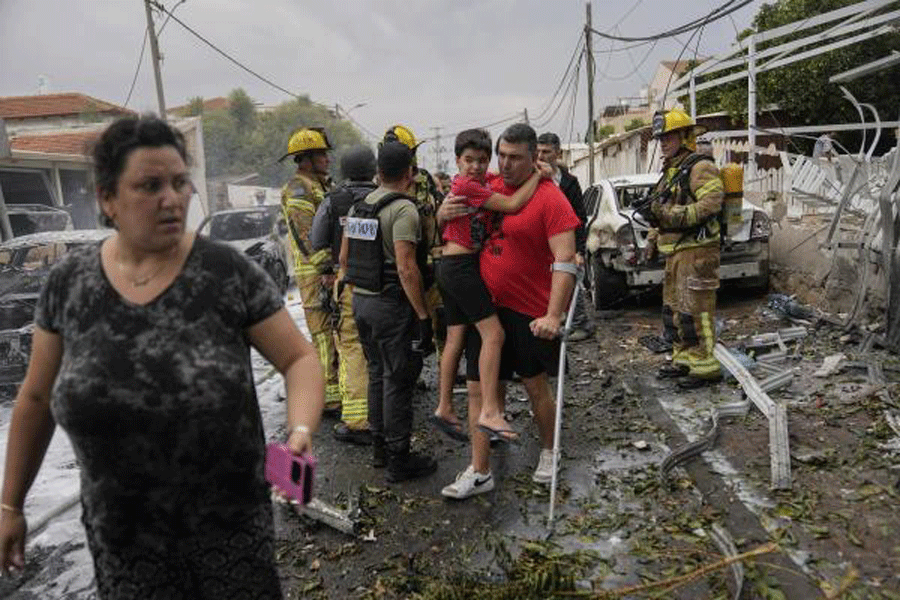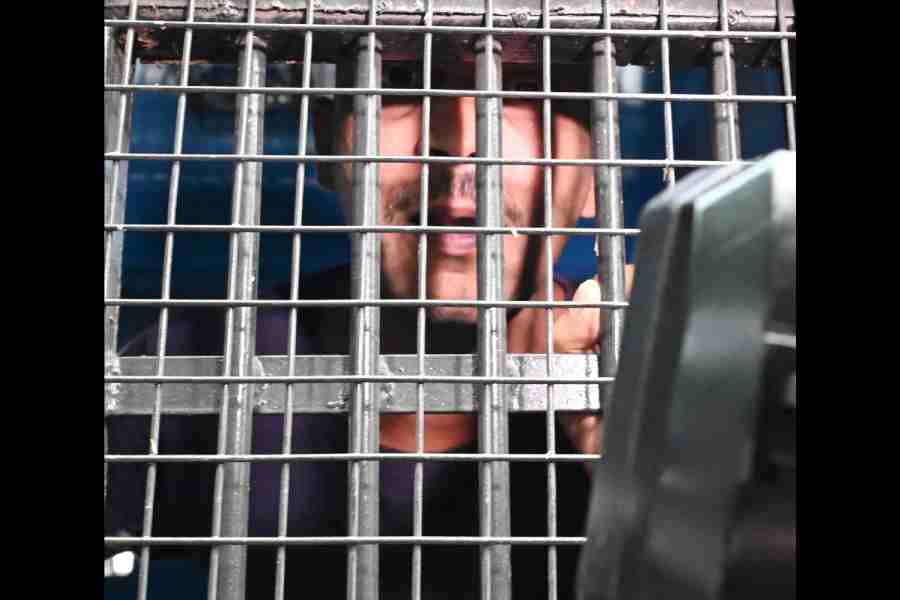Knives are out in Israel for Prime Minister Benjamin Netanyahu as the nation tries to come to terms with the huge intelligence and military failure that Saturday’s attack by Hamas represents.
While leader of the Opposition Yair Lapid has said he is willing to put aside differences, he has also called for the establishment of an emergency government, maintaining that Netanyahu cannot manage a war with the current “radical and non-functional cabinet”.
In a hard-hitting editorial, Haaretz — Israel’s newspaper of record — on Sunday wrote: “The disaster that befell Israel on the holiday of Simchat Torah is the clear responsibility of one person: Benjamin Netanyahu. The Prime Minister, who has prided himself on his vast political experience and irreplaceable wisdom in security matters, completely failed to identify the dangers he was consciously leading Israel into when establishing a government of annexation and dispossession, when appointing Bezalel Smotrich and Itamar Ben-Gvir to key positions, while embracing a foreign policy that openly ignored the existence and rights of Palestinians.”
Smotrich, the finance minister, opposes Palestinian statehood and has been pushing for expanding Israeli settlements on the West Bank. National security minister Ben-Gvir is known for his racist rhetoric.
Haaretz suggested there would be a “justified demand” to replace the heads of the army, military intelligence and Shin Bet security service (internal intelligence).
“The military and intelligence failure does not absolve Netanyahu of his overall responsibility for the crisis, as he is the ultimate arbiter of Israeli foreign and security affairs,” the newspaper said.
“Netanyahu is no novice in this role, like Ehud Olmert was in the Second Lebanon War. Nor is he ignorant in military matters, as Golda Meir in 1973 and Menachem Begin in 1982 claimed to be.”
According to the editorial, last weekend’s turn of events was the direct result of the flawed policies pursued by Netanyahu in this latest “fully Right government” with overt steps to annex the West Bank and carry out ethnic cleansing in parts of the Oslo-defined Area C, including the Hebron Hills and the Jordan Valley.
“This also included a massive expansion of settlements and bolstering of the Jewish presence on Temple Mount, near the Al-Aqsa Mosque, as well as boasts of an impending peace deal with the Saudis in which the Palestinians would get nothing, with open talk of a ‘second Nakba’ in his governing coalition,” it said.
“As expected, signs of an outbreak of hostilities began in the West Bank, where Palestinians started feeling the heavier hand of the Israeli occupier. Hamas exploited the opportunity in order to launch its surprise attack on Saturday.”
This was borne out in an opinion piece by journalist Uri Misgav in the same newspaper on Sunday.
“Many hours into the attack, Israelis kept wondering where the Israel defence forces were. The answer: in the West Bank, or at home. Nearly all the army’s conscript units were busy policing and maintaining the occupation and settlement enterprise. One battalion was directly involved in protecting a prayer session and Torah lesson held on the main street of the Palestinian town of Hawara,” Misgav said.
“Israelis also asked: Where were the cabinet members and their head? The answer: on a trip, flying somewhere, tweeting. Prime Minister Benjamin Netanyahu had just returned from another week’s vacation at a luxury hotel. The combined attack launched by Hamas began at 6.30am. The Prime Minister’s convoy left his weekend residence in Caesarea at 8.00am.”
The Times of Israel carried an opinion piece titled “For years, Netanyahu propped up Hamas. Now it’s blown up in our faces”.
In it, Tal Schneider traced how Netanyahu “took an approach that divided power between the Gaza Strip and the West Bank -- bringing Palestinian Authority President Mahmoud Abbas to his knees while making moves that propped up the Hamas terror group” with the larger goal of preventing anyone from forming a Palestinian state.
“Most of the time, Israeli policy was to treat the Palestinian Authority as a burden and Hamas as an asset. Far-Right M.K. Bezalel Smotrich, now the finance minister in the hard-line government and leader of the Religious Zionism party, said so himself in 2015,” Schneider said.
“According to various reports, Netanyahu made a similar point at a Likud faction meeting in early 2018, when he was quoted as saying that those who oppose a Palestinian state should support the transfer of funds to Gaza, because maintaining the separation between the Palestinian Authority in the West Bank and Hamas in Gaza would prevent the establishment of a Palestinian state.”











